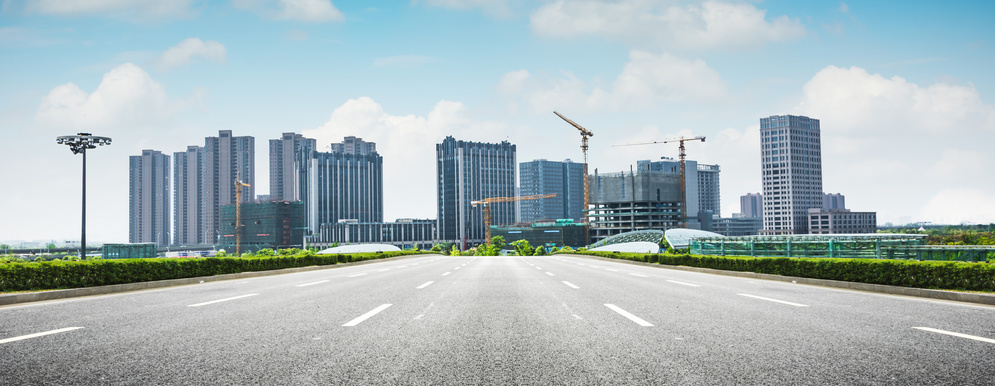To say the least, the Covid-19 crisis has transformed consumer preferences. The accent is now on safety, security and access to 'around-the-corner conveniences. These are natural consequences of a major pandemic that makes us scared about things that never worried us too much before - even the air we breathe and getting too close to other people.
How do you create a perception of safety in such a scenario? To state it simply, by getting more control of your personal space. It is not possible to change everything around us, but we can choose where and how we live. This is one of the main reasons why Indians had started moving out of rented properties and purchasing their own homes. You can control many things in your own home.
But not all homes are created equal. Modern high rises look impressive from the outside - but in a pandemic, how safe is it to live in a vertical mass housing project built on a small plot in an extremely crowded city area? When you exit the building (or even before you do) how safe are you and your family in a day and age where social distancing and air purity are so important?
The residential formula of the future
Usually spread over large areas enclosed in segregated compounds, integrated townships are mixed-developments that offer a highly controlled, all-inclusive lifestyle. Shopping, eating out, offices, schools, hospitals and other key businesses are all available. Another format is the residential-only township which is self-sustained in terms of all basic amenities for daily living. Such townships, which are now extremely popular, offer a variety of housing options from apartments, villas, independent floors and in some cases, even plots.
Such projects have existed in India for many years now, but demand for them is increasing hugely because of the Covid-19 outbreak. Before the pandemic, they were largely in demand by people who work in large IT or manufacturing hubs. Because townships are much larger than normal housing projects, they require large land parcels and coincidentally, IT and other industries are mostly also located on the outskirts.
Today, this customer base has grown tremendously. As more and more coronavirus hotspots were identified in the choked city areas, there has been a huge movement to outlying areas which are safer, less costly and have more healthy green surroundings. Since large townships also provide autonomous ecosystems with the added benefits of safety, recreation and community living. For people who can work from home and have kids attending e-schooling, townships are the answer to many a prayer.
A recent real estate report by the global consulting firm Ernst Young also confirms that self-sustainable integrated townships will increasingly become the preferred choice of homebuyers post Covid-19.
In Pune, a prominent integrated township developer's advertisement simply asks, 'Why go out?' This question is extremely relevant in pandemic times when lockdowns and curtailed movement are the order of the day.
Benefits of township living
There are about 108 large integrated township projects across India. NCR, with its huge abundance of land parcels, is home to almost 40% of them. In Maharashtra, Pune has at least eight residential-only and larger integrated townships that are properly connected to the main cities.
The lifestyle they offer is exceptional. Top-grade housing coexists with parks and gardens, dedicated jogging tracks and other sports facilities, water bodies and open green spaces to promote overall health as well as emotional wellbeing. In India, such features are obviously on the top of every homebuyer's wish list - but in normal housing, they always have to compromise on most of them.
A genuinely sustainable lifestyle
We all know that sustainability is more than just a set of rooftop solar panels and some rainwater harvesting. Many new housing projects have one of both of these features, but townships can take sustainable living to the nth level. Most townships are meticulously planned, optimally utilising natural resources. Since buildings are properly spaced out, townships do not create 'heat islands' which are now the unfortunate norm in most cities.
While planning township developments, developers ensure proper utilisation of water, electricity, waste management, rainwater harvesting. For instance, in many projects, recycled water is used for flushing and horticulture to reduce the water need of the community. Energy-efficient LED streetlights bring down electricity consumption, and thereby not only recurring costs. but environmental impact
All this, along with complete freedom from the infrastructure constraints and challenges of inner-city life - including traffic congestion, air and noise pollution, and high crime rates. In these paranoid pandemic times, townships offer the ultimate value propositions of convenience, safety, space, affordability and a healthy, relaxed lifestyle – all in one package.
Without a doubt, townships are the new face of residential real estate development - during the Covid-19 pandemic and beyond.
About the author:

Akash Pharande is Managing Director, Pharande Spaces, a leading real estate construction and development firm famous for its township properties in West Pune. Pharande Promoters and Builders, the flagship company of Pharande Spaces and an ISO 9001-2000 certified company, is a pioneer of townships in West Pune.





















